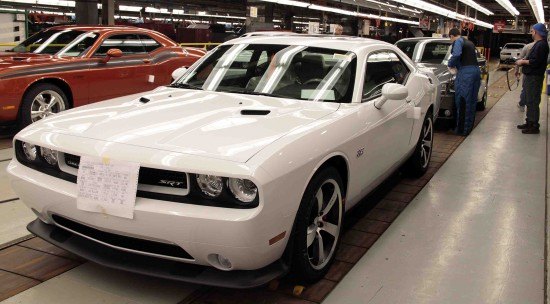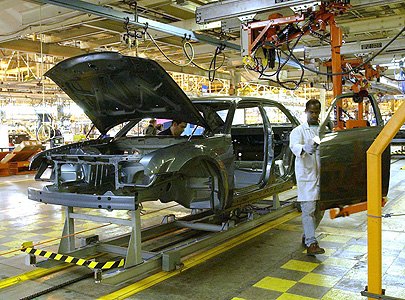#brampton
Chrysler, Dodge Brands' Hazy Future Doesn't Worry Union Boss
For two brands steeped in Americana, Chrysler and Dodge sure seem to love Canada. Two Ontario plants continue cranking out Grand Caravans, Challengers, Chargers, 300s, and Pacificas, even as the 9,600-strong workforce in Windsor and Brampton grow leery of the future.
It’s not just the complete lack of interest Fiat Chrysler displayed in those particular brands during last month’s five-year plan unveiling; it’s also the threat of import tariffs on foreign-made vehicles that could very well sink across-the-border manufacturing.
Nah, it’s all good, says Jerry Diaz, president of the union representing Detroit Three autoworkers in the Great White North.
Canada, Ontario Governments Kick in Millions for Toyota Plant Upgrades
Federal and provincial governments in Canada have offered more than $100 million (USD $77 million) for improvements to the Cambridge and Woodstock plants, CTV news is reporting.
The incentives are part of a $421 million (USD $323 million) investment that will be used for light metal stamping in Woodstock, which makes the RAV4, and plant improvements in Cambridge, which produces the soon-to-be-gone Toyota Corolla and Lexus RX vehicles. Toyota has said it will move the Corolla to Mexico, but hasn’t announced what would replace it at the Cambridge plant.
The Canadian government tipped in $34 million in 2013 for improvements to the Cambridge plant to produce the RX 450h.
Car Building in Ontario Could Die, and They Probably Can't Save It
Ontario’s debt is swelling and as home to eight manufacturing plants — the largest complex in North America — automakers may have a tough time keeping plants open in Canada’s most-populous province.
According to a story by the Financial Post, Ontario is moving forward with an ambitious plan to revamp roads and mass transit systems despite its debt being downgraded by Standard & Poor’s bond index. The broad public spending plan also extends to other sectors, despite high unemployment numbers and slumping manufacturing jobs.
Automakers such as Fiat Chrysler Automobiles have called on the provincial government to cut back on public programs and reduce costs on utilities in an effort to keep car building in the province profitable. This year, Chevrolet will shift production of its Camaro to Michigan. On the whole, Oshawa GM production has a dark cloud lingering overhead until the company decides what to do with the facility in 2016.
Survival Of Canadian Auto Industry Hinging On FCA Brampton Reinvestment
The fate of Canada’s auto industry is linked to whether or not the nation’s leaders can convince FCA to reinvest into its Brampton, Ontario facility.
Canadian Government Funds Would Safeguard Windsor For 30 Years
On the heels of reports that put a $3.6 billion pricetag on Chrysler’s investment at two Canadian plants, another Canadian outlet is reporting that the money would ensure the future of the two plants for decades to come.
















Recent Comments